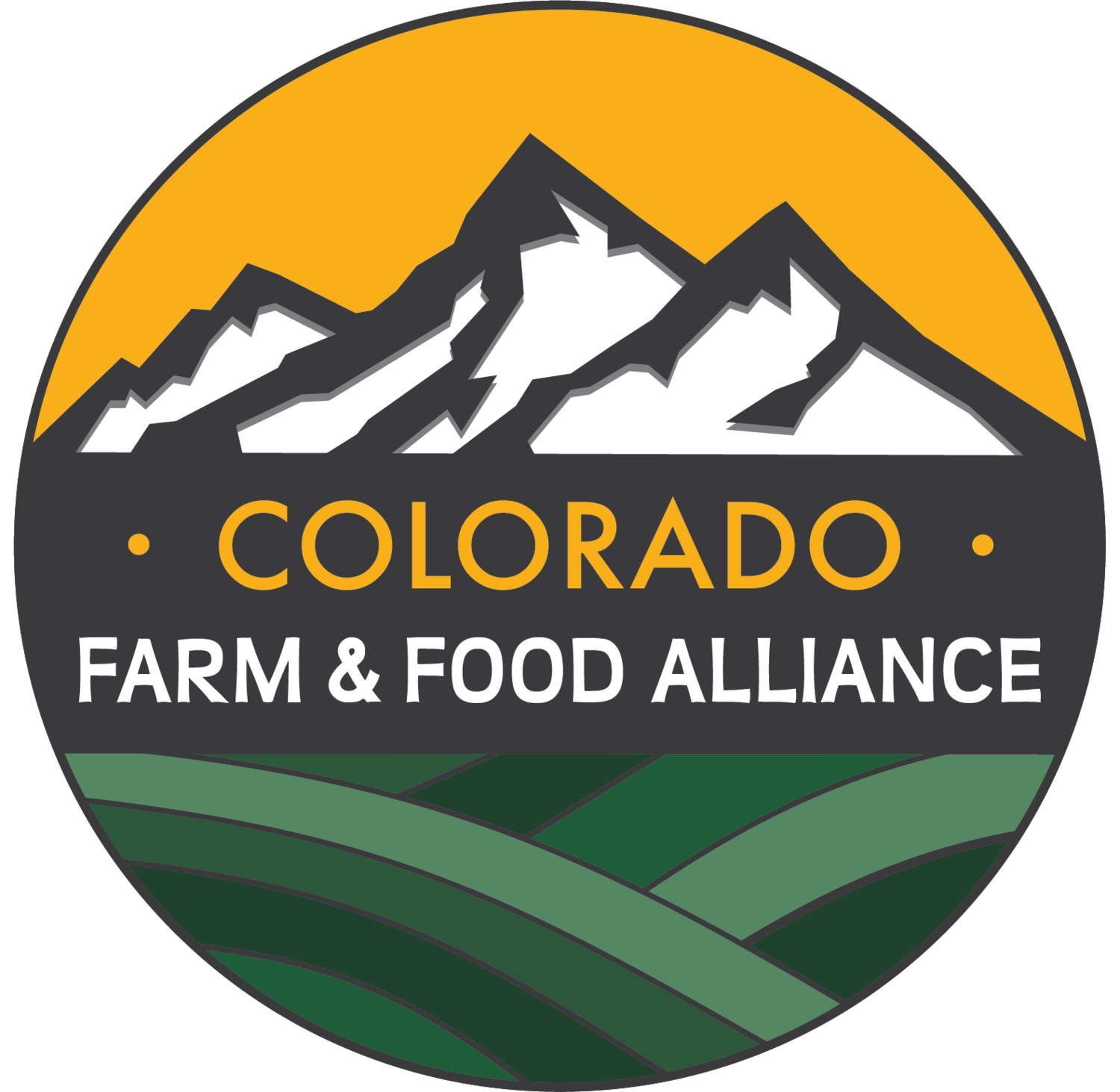Farm and Food Leader Spotlight: Tony Prendergast and Sunshine Beef
Ranching Resilience and Local Economy as Tools to Meet Uncertain Times
The Colorado Farm & Food Alliance serves to highlight and showcase the vibrant local food movement that is present throughout Colorado. As part of our Resilient & Secure Foodsheds program, the Colorado Farm & Food Alliance acts as a convening force to build and enhance local food networks, and connect consumers, the public, and peers to local food producers, businesses, and organizations. As a part of our new Farm and Food Leader series, we want to highlight our partners in the local food movement and illustrate their commitment to building more secure food systems and a healthier planet.
There’s a long history of ranching and farming in Tony Prendergast’s family. Both of his grandfather’s were ranchers and farmers, and as a 3rd generation Coloradoan born and raised in Western Colorado, Tony has dreamed of ranching since he was a kid. Tony spent part of his childhood growing up on a small ranch, working on ranches as a teenager, and after working a variety of other jobs earlier in life, he always knew he wanted to get back to ranching. Around 23 years ago, he and a few others put together a landowning cooperative to purchase the XK Bar Ranch in Crawford, CO and it’s off of this land that he owns and operates Sunshine Beef, a grass-fed beef company.
Tony’s land ethic and commitment to a healthy and thriving landscape has influenced the way he runs his business. With a drive towards regenerative and sustainable agriculture, Tony’s cattle are grazed on a rotational cycle and are moved around a lot. This practice is not only good for the welfare of his cattle, but ensures that the grass is grazed as effectively as possible. Without tilling the soil and stirring the ground, rotational grazing sequesters carbon in the roots of the actively growing grasses, keeping carbon in the soil.
His additional land stewardship practices include hand chopping and hand pulling all of the weeds on his land in lieu of chemical pesticides and fertilizers. The hay he harvests is fed right back onto the pastures to increase the fertility cycle, he uses a lot of low and light electric fence to keep cattle in but leave fields accessible to the abundant wildlife in the area. Tony strives to be conscious of energy consumption, like making good use of firing up diesel engines and minimizing fuel consumption. This helps him track and consolidate his carbon footprint as much as possible.
One of Tony’s proudest moments with Sunshine Beef is how localized the market is, another way he seeks to improve the carbon balance of his prations. The feed is raised right on the land, his cattle are processed in Montrose and Fruita, and the meat is largely sold directly to consumers, to smaller stores and farmers markets in the area which closes the transportation loop by not shipping across the country. There are also virtually no feed inputs, excluding the salt and mineral blocks that nourish the animals, so overall the nutrient cycling is very localized.
As we continue to observe how climate change impacts our planet, the repercussions are already being felt at the XK Bar Ranch. Some of the biggest current threats to Tony’s business are water availability, the current drought cycle, and increased weather variability. Tony is working incredibly hard to figure out how to adapt to a more arid climate and how his operation wraps its arms around that. Working with the U.S. Department of Agriculture Natural Resources Conservation Service (NRCS), he’s working to adjust his irrigation methods and improve efficiency to use less water. .
Tony realizes that with the aridification that is occurring across the Southwest, he’s going to need more land to raise fewer animals which is challenging with land leases. That coupled with increased climate and weather variability, he’ll need more pastures, more rotational grazing, and better land management to continue operating a successful business.
Tony Prendergast talks about his support for oil and gas leasing reform on public lands.
Tony notes that good soil health is imperative and he will have to adapt his expectations of what can be harvested and when. He says that weather variability is challenging because if it’s a dry year and you can’t harvest as much off the ground, to not overgraze means you need more acres to spread grazing out on. On the opposite end, if there’s a wet year, there needs to be a plan to harvest the excess growth which is challenging for a rancher because you have to pay for the extra land and water each year. With climate variability, Tony has to be inventive and creative to manage the changes to the ecosystems around him that bring challenges and threats to his business.
And with many businesses it is not only the challenges you plan for, even those as uncertain as climate change. 2020 began with the unknown risks of a growing pandemic. Thankfully, Sunshine Beef has weathered COVID crisis well, and Tony’s been pleasantly surprised that there’s still a strong demand and value placed on local food. He’s pleased that the Colorado Farm & Food Alliance and other organizations are advocating on behalf of the local food movement and are working hard to spread the word and encourage people to value local food. Tony is grateful that the Colorado Farm & Food Alliance has employed tools such as our local food action maps to spread awareness and cultivate an ethic around local food.
Tony’s 100% grass-fed beef can be purchased at Indigo Autumn, Farm Runners, the Arbol Farmer’s Market in Paonia, Cedaredge Farmer’s Market, and Delicious Orchards. You can also purchase his product directly at the XK Bar Ranch, as long as you call and make an appointment first. For larger quantities and bigger orders, Tony delivers to people’s homes. More information and contact info can be found at SunshineBeef.com

